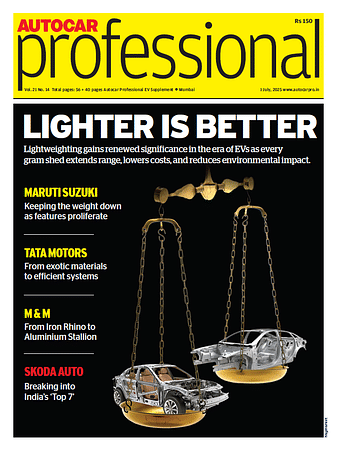Tata Motors Global Wholesales Decline 9% to 2.99 Lakh Units in Q1 FY26
Company reports lower sales across commercial vehicles, passenger vehicles, and Jaguar Land Rover segments.
Tata Motors Ltd. reported global wholesales of 2,99,664 units in the first quarter of fiscal year 2026, marking a 9% decline compared to the corresponding period in the previous year. The Mumbai-based automotive manufacturer disclosed the quarterly performance figures to stock exchanges on Tuesday, showing reduced sales across all business segments including Jaguar Land Rover.
The company's global wholesale numbers encompass commercial vehicles, passenger vehicles, and luxury brands Jaguar and Land Rover operations worldwide.
Segment Performance
Commercial vehicles and Tata Daewoo range recorded global wholesales of 87,569 units in Q1 FY26, representing a 6% decrease from the same quarter last year (93,396 units). This segment forms a significant portion of Tata Motors' domestic operations.
The passenger vehicle segment, which includes electric vehicles, reported wholesales of 1,24,809 units, down 10% year-on-year compared to 1,38,893 units in Q1 FY25. This decline reflects challenges in the domestic passenger car market during the quarter, including moderate post-festive demand and competitive pricing pressures.
Jaguar Land Rover Results
Jaguar Land Rover recorded global wholesales of 87,286 vehicles in Q1 FY26, an 11% decline compared to Q1 FY25 (98,316 units). Within this, Jaguar brand wholesales totaled 2,339 vehicles for the quarter, while Land Rover accounted for 84,947 units.
The JLR figures exclude volumes from CJLR, the joint venture between Jaguar Land Rover and Chery Automobiles, as per company disclosure practices.
Market Context
The wholesale decline comes amid challenging market conditions affecting the global automotive industry, including supply chain disruptions, softening rural demand, and fluctuating input costs.
In FY25, Tata Motors had reported record EV sales of 1,53,000 units, contributing approximately 12.5% to its overall passenger vehicle portfolio. The Q1 FY26 decline in this segment indicates near-term headwinds in what remains a growing category.
The company is preparing for several new product launches in FY26, including facelifts of the Harrier and Safari, and the production-ready Curvv EV. Analysts expect the festive season in Q2 and policy momentum around EV subsidies to play a pivotal role in shaping demand recovery.
RELATED ARTICLES
MediaTek Sees India Account for 20% of Global Automotive Chip Rollout in 5 Years
Taiwanese semiconductor firm bets big on India's connected vehicle ecosystem, ramps up local engineering efforts and EV ...
MG Says Not Immune to Rare Earth Disruption
Managing Director says Chinese connection with SAIC Motor provides no preferential access to critical materials needed f...
Gabriel India to Invest Rs 27 Crore in Fasteners Joint Venture with South Korean Firm
Company will hold 51% stake in Jinhap Automotive India Private Limited to manufacture automotive and industrial fastener...





 By Shruti Shiraguppi
By Shruti Shiraguppi
 08 Jul 2025
08 Jul 2025
 797 Views
797 Views





 Darshan Nakhwa
Darshan Nakhwa


 Prerna Lidhoo
Prerna Lidhoo


